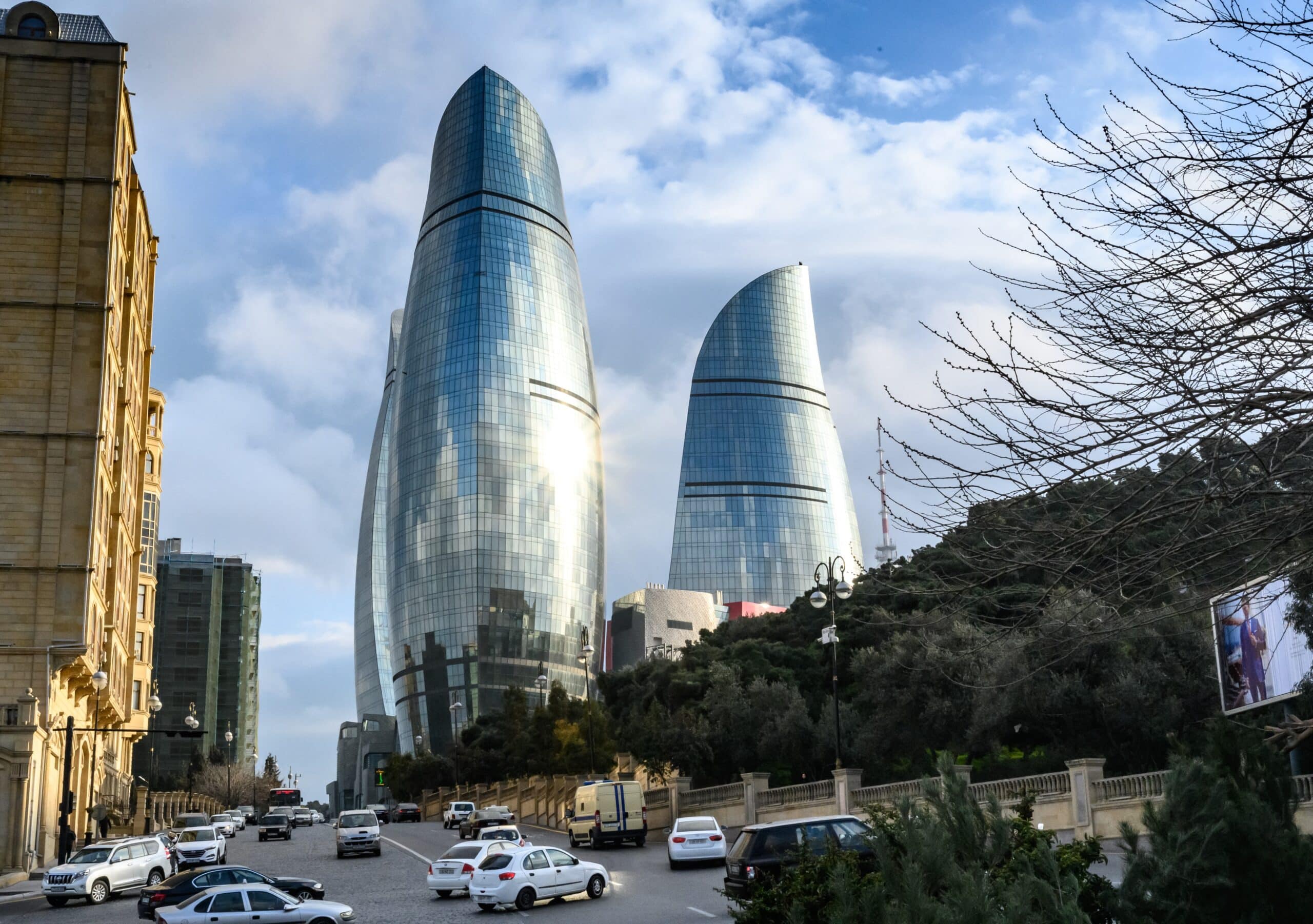
A view of Baku and the Flame Towers on March 18, 2019. FILE PHOTO/Agence France-Presse
WASHINGTON — A key US senator called Monday for Azerbaijan officials to release 15 jailed activists and journalists ahead of the United Nations COP29 climate summit in Baku in November.
“Hosting a major international conference like COP29 should come with responsibilities and expectations that host countries allow frank discussion of information and issues,” said Ben Cardin, chairman of the Senate Foreign Relations Committee.
This requires recognizing freedoms of speech and assembly, said the Democratic senator from Maryland, adding that “Azerbaijan has not done so.”
READ: Azerbaijan wins regional backing to host COP29 climate summit
The UN conference takes place from November 11 to 22.
Among those that Cardin called for the release of were pro-environment former MP Nazim Baydamirli and activists Gubad Ibadoghlu and Bakhtiyar Hajiyev.
Others include editors and journalists focused on anti-corruption, such as Ulvi Hasanli, Sevinj Vagifgizy and Nargiz Absalamova, as well as economist Farid Mehralizada.
READ: Gas booming for UN COP29 host Azerbaijan
“If Azerbaijan seeks to create a durable relationship with the Euro-Atlantic community, I urge President Aliyev to release those unjustly imprisoned by his government,” said Cardin, referring to President Ilham Aliyev.
These include Armenian detainees and “community activists who peacefully demonstrated against poor labor practices and harmful environmental impacts of the Chovdar gold mine operation,” he said in a statement.
The COP29 summit will focus in large part on how much wealthy industrialized nations should contribute to help poorer countries adapt to climate change.
Richer countries — most responsible for climate change — are facing pressure to commit more money to help developing countries.
But there is strong disagreement over how much they should pay, and some have pushed for large polluters like China and Saudi Arabia to also contribute.
Azerbaijan, a gas-rich nation on the Caspian Sea, said earlier this year that it hopes to raise money from fossil fuel producers for green projects in developing countries — attracting criticism from activists who called it “greenwashing.”

